Fair trade is a movement to help the producers of goods receive fair treatment. Fair trade plays an important role in maintaining fair wages and living standards for sellers of all kinds of products, particularly in less developed countries.
There are a number of household textiles that are produced using fair trade standards, including fair trade rugs, tablecloths, and blankets. Choosing fair trade textiles helps ensure that they’re produced ethically and sustainably. This guide will walk you through why buying fair trade textiles makes an impact, and will provide examples of a few companies that sell high-quality fair trade rugs, fair trade tablecloths and more.
Background Information: Fair Trade Pros and Cons
Why Buying Fair Trade Textiles Makes an Impact
The textile industry generates around $450 billion USD every year and produces around 120 billion pounds of textiles. That’s equivalent to the weight of almost 30 million cars! While much of the textile industry is focused on clothing, other textiles are produced as well for a number of uses, including blankets, rugs and tablecloths.
From raw material production to manufacturing, the creation of fabrics is a laborious process. Many textile workers labor under unsafe and exploitative working conditions. Sweatshops, factories that engage in exploitation and are often noncompliant with labor laws, are quite common in the textile production industry, especially in developing countries. Many textile workers don’t earn a living wage and work extremely long hours to meet company deadlines, some as many as 18 hours a day. Additionally, many workers are unable to unionize to help improve their conditions.
The textile industry mostly sells to Western buyers. When companies contract factory workers to produce textiles, competition for lower prices often translates to cutting corners in the production process – including cutting corners when it comes to safety and fair labor practices.
Fair trade standards for textiles, including clothing and other fabric products, aim to improve working conditions for workers and avoid exploitation. Fair trade standards for textiles help ensure that:
- Working conditions are safe
- Workers earn a living wage
- Workers have the power to unionize
- No labor is forced and working hours are limited
- No child labour is used
- Fabric is produced using sustainable practices
When you buy fair trade fabrics, you help support producers that are dedicated to these ethical standards. Not only can you rest assured that your rugs, tablecloths, or blankets are ethically-produced, but you also help provide financial support to fair trade workers.
The Fairtrade Textile Standard
In order to become Fairtrade Certified, textile producers must adhere to a strict set of standards, known as the “Fairtrade Textile Standard.” The standard is created by Fairtrade International, one of the certifying organizations for official Fairtrade Certification. These standards create specific requirements that help meet the goals of fair trade, such as fair wages or fair working conditions. The standard also includes strict monitoring strategies to ensure compliance with the standards, such as audits.
The Fairtrade Textile Standard covers cotton and other fiber production. In addition to worker safety and fair treatment, it promotes environmental principles such as responsible use of chemicals (that may harm human health and the environment). For example, the standard includes a list of substances that may not be used to produce fair trade fabrics.
Where to Buy Fair Trade Household Textiles
More than 40 million people work to produce textiles around the world, with the largest textile manufacturing sector located in Asia. Many of these places either lack fair labor regulations or lack enforcement of existing labor laws. You can help ensure safe and fair working conditions for these fabric producers by buying fair trade products, including fair trade rugs, fair trade tablecloths, and fair trade blankets.
Fair Trade Rugs
From hand woven rugs to factory-made, there are a number of unique options for decorating with a fair trade rug. Here are a few places you can find fair trade rugs:
1. Bolé Road Textiles
Bolé Road Textiles is a textile company based in New York City that partners with weavers in Ethiopia to design and weave their rugs. Not only are they Fair Trade Certified, but they focus on using local, ethically-sourced materials. Bolé Road Textiles’ rugs feature colorful geometric patterns (although they have some in neutral tones as well), and are all hand-woven from Ethiopian wool.
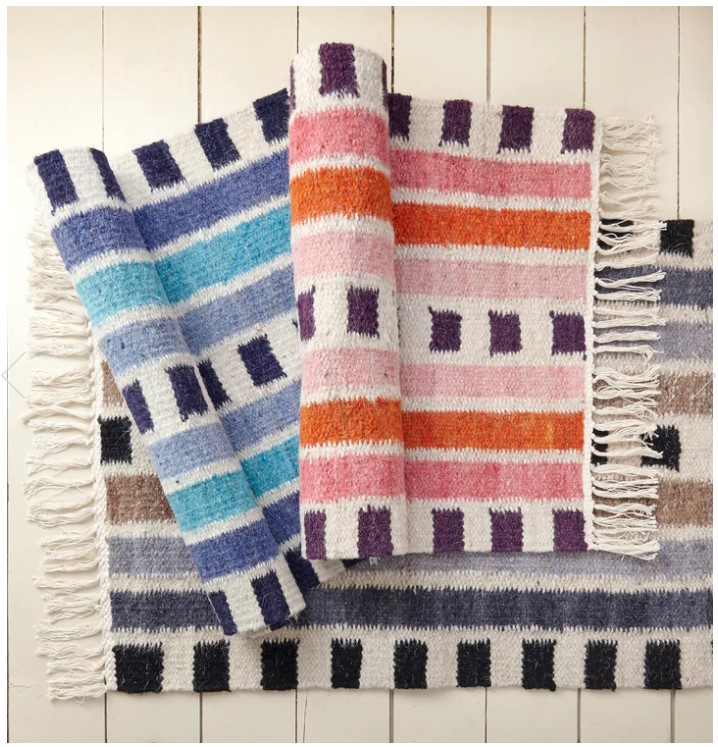
2. MINNA
MINNA sells rugs in neutral, muted colors with modern abstract designs. Their rugs are all fair trade certified and are produced in Mexico, Guatemala and Peru; you can read more about their artisan partners in these countries on their website. Most of their rugs are made from wool and echo traditional craftsmanship techniques with more modern designs.
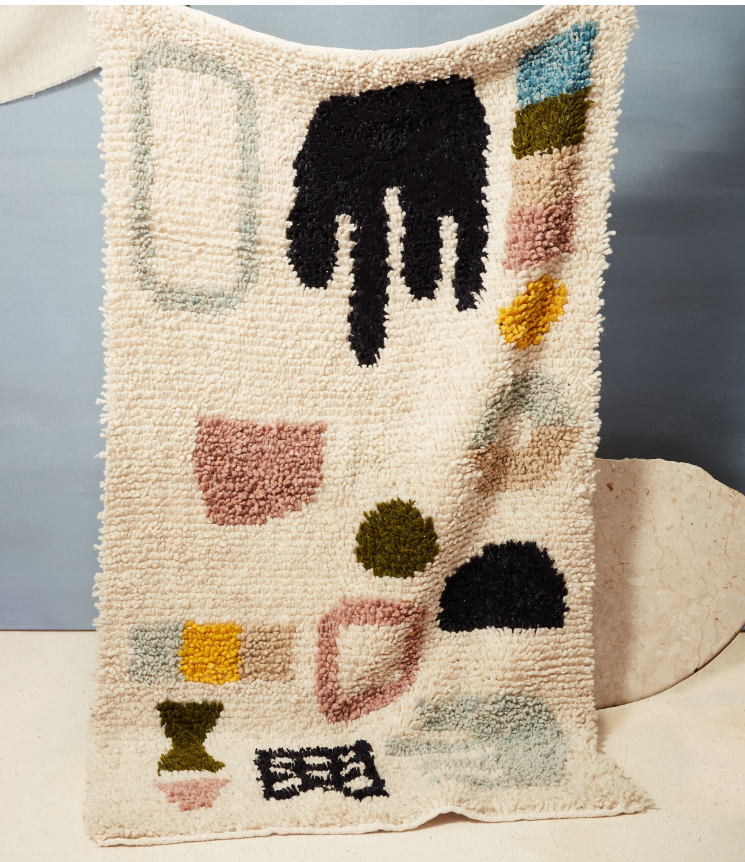
3. The Citizenry
If bold colors aren’t your thing, then the Citizenry’s fair trade rugs might be for you. Their rugs are all hand-woven by artisans in India. Their rugs are also OEKO-TEX certified, meaning they are more sustainable than many conventional textiles.
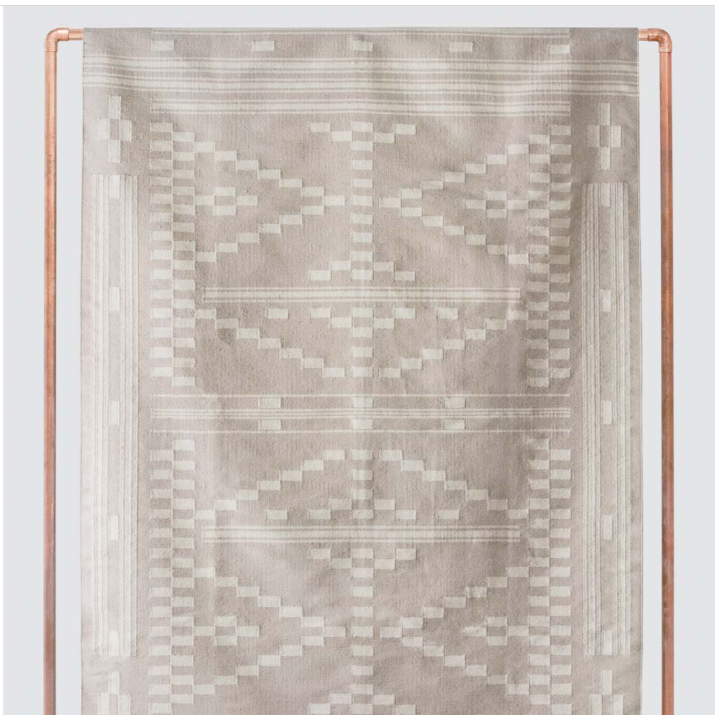
Other companies selling ethically-produced rugs include:
Fair Trade Tablecloths
Whether you’re throwing a dinner party or sitting down to a dinner for one, your table is sure to be brightened by a fair trade tablecloth. Here are a few options:
1. Ten Thousand Villages
Ten Thousand Villages creates a variety of kitchen textile items, from aprons to tea towels to tablecloths. Their tablecloths are all fair trade and come in a variety of unique designs, many of which are based on traditional patterns from the country of origin. Their fair trade tablecloths come from all over the world, including India, Guatemala, Bangladesh and Vietnam.
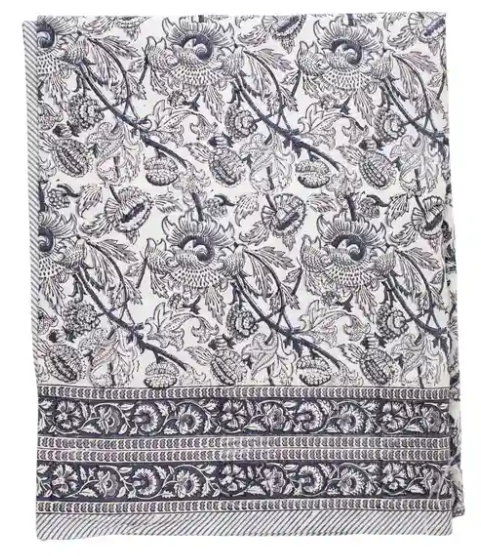
2. Zuahaza
Zuahaza is a relatively new textile company based in Bogota, Colombia. All their products, including their table runners, are produced with fair trade standards in mind. Not only do they focus on collaborating with individual artisans to further their careers, but they use only organic materials and processes.
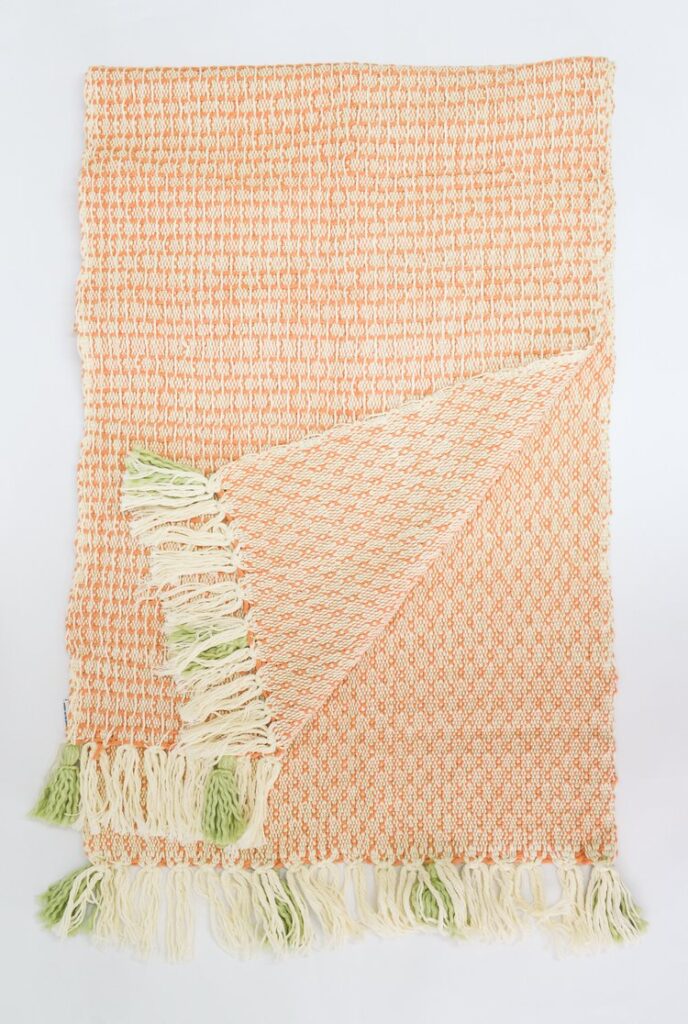
3. Made Trade
If you’re looking for modern, bold designs, look no further than Made Trade. All their tablecloths and many other products (including clothing, furniture and other home goods) are fair trade and sustainably produced. Most of their tablecloths are also handcrafted.
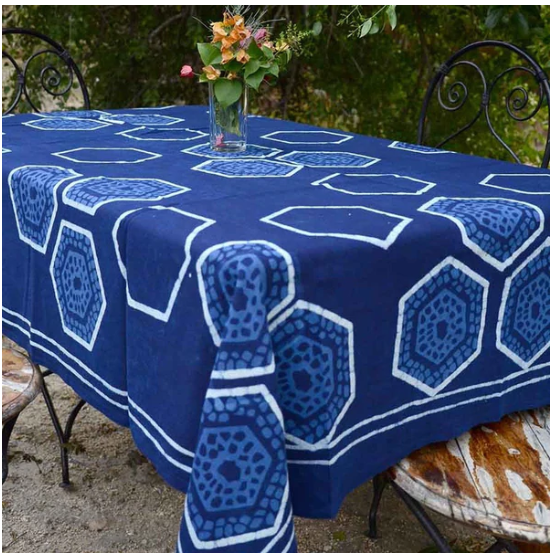
Other companies selling ethically-produced tablecloths include:
Fair Trade Blankets
Fair trade blankets come in all sizes and colors. Here are a few options:
1. Boll & Branch
Boll & Branch was founded in 2014 and has since created a wide array of fair trade blankets. In fact, they’re the first 100% organic Fair Trade Certified bedding company. In 2020 alone, they purchased around 5.3 million pounds of fair trade seed cotton for their 100% organic cotton blankets.
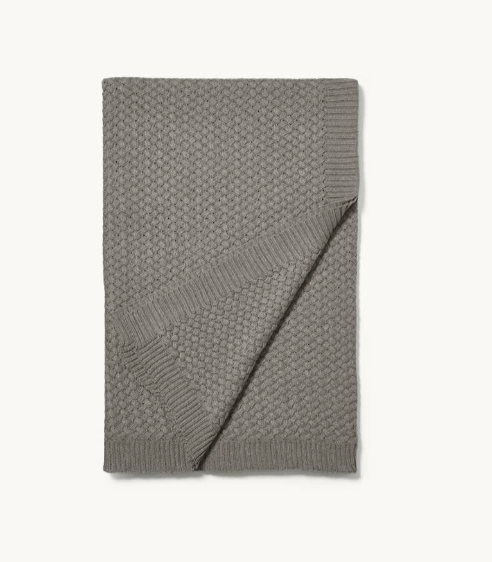
2. Stray & Wander
Stray & Wander makes a variety of blankets that are hand-woven from organic cotton. They focus on preserving traditional weaving methods and are fair trade certified. Their artisans set the prices for each fair trade blanket they make to ensure fair wages, as some blankets take longer to make than others.
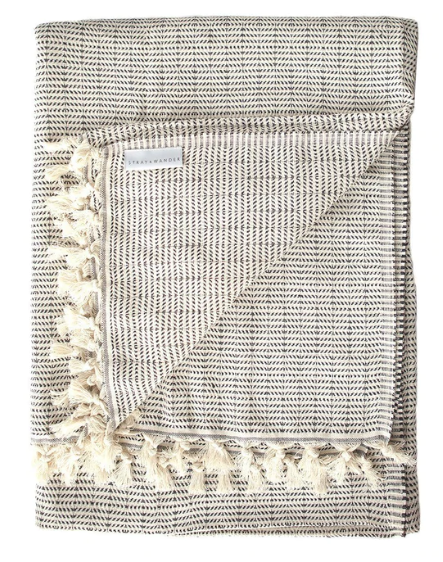
3. Anchal
Anchal is actually a non-profit company that sells fair trade quilts. Their designs are very colorful, and are all handmade with organic cotton. The organization supports women who are vulnerable to exploitation and women who are survivors of violence through economic empowerment. Their quilts are also eco-friendly, as they’re made from recycled saris.
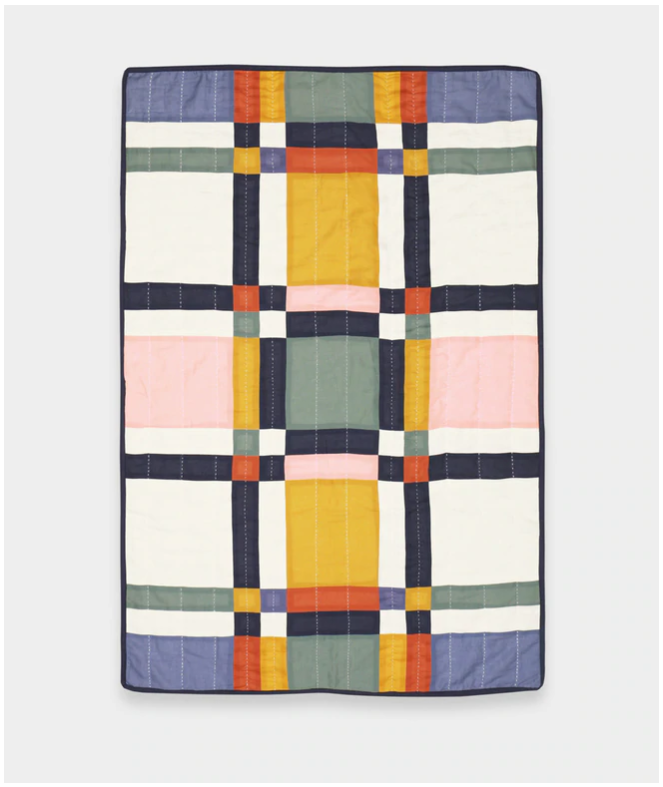
Other companies selling ethically-produced blankets include:
This list is by no means exhaustive of the many fair trade textile options that exist. Many fair trade organizations like the Fair Trade Federation or Fair Trade USA include product finders on their websites that can help you find fair trade products near you.
